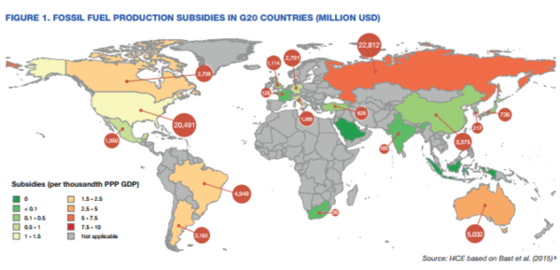Climate Change: A Policy Brief on Fossil Fuel Subsidies and Future Reform
Since November 6, the United Nations Climate Change Conference COP23 has called for a global and united front for climate action. This week, more than 15,000 scientists from 184 countries have issued a warning: Mankind must take immediate action to reverse the effects of climate change, deforestation and species extinction before it’s too late.
Three HEC students from the MSc in Sustainability and Social Innovation (SASI) program - Lindsay Ellis, Johannes Florian Kerst and Adithya Pradeep Kumar - have co-written a policy brief on fossil fuel subsidy reforms with the Institute for Climate Economics (I4CE). This paper, entitled "Fossil fuel subsidy reforms: state of play and ways forward", indicates possible ways to move towards a sounder and more efficient approach to fossil fuel subsidies.

Promoting the production and consumption of fossil fuels through subsidies is incompatible with the Paris Agreement on climate change. While G20 countries have committed to phase out “inefficient fossil fuel subsidies that encourage wasteful consumption” since 2009, the progress towards reform has been mixed. The G20 countries still provide about USD 70 billion in production fossil fuel subsidies, while the total global consumption subsidies are estimated to be in the range of USD 320 billion to USD 5 trillion per year.
Recent examples demonstrate that subsidy reforms, combined with compensation mechanisms, are feasible. While there is no silver bullet to tackle the fossil fuel subsidy issue – and some of them are actually necessary –, the next steps towards a sounder and more efficient approach to fossil fuel subsidies may include:
- Work within existing platforms such as the WTO to refine existing definitions in the specific case of fossil fuel subsidies;
- Reinforce existing peer-review processes and extend them through international cooperation platforms such as the UNFCCC;
- Use transparency frameworks to improve the national and international reporting on fossil fuel subsidies and their reform;
- Reinforce international initiatives that allow for transnational research, such as the Global Subsidy Initiative and the OECD/IEA works, and efforts such as the World Bank’s of IMF’s that foster capacity building on these issues.
Click here to read the Institute for Climate Economics (I4CE) climate Brief n°50